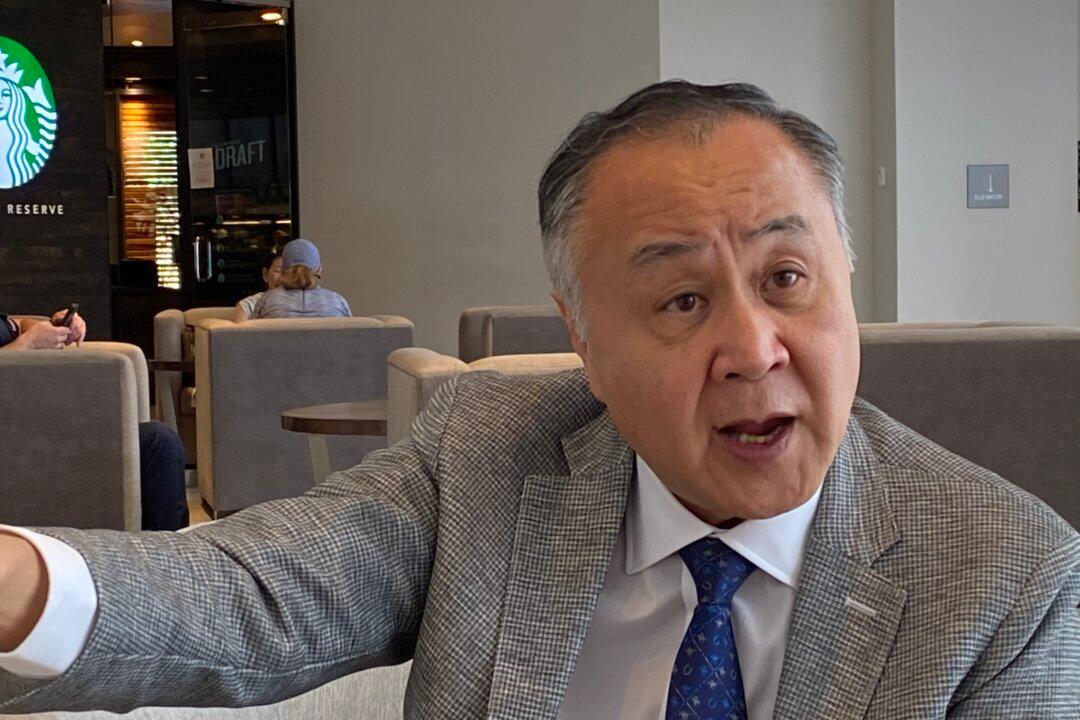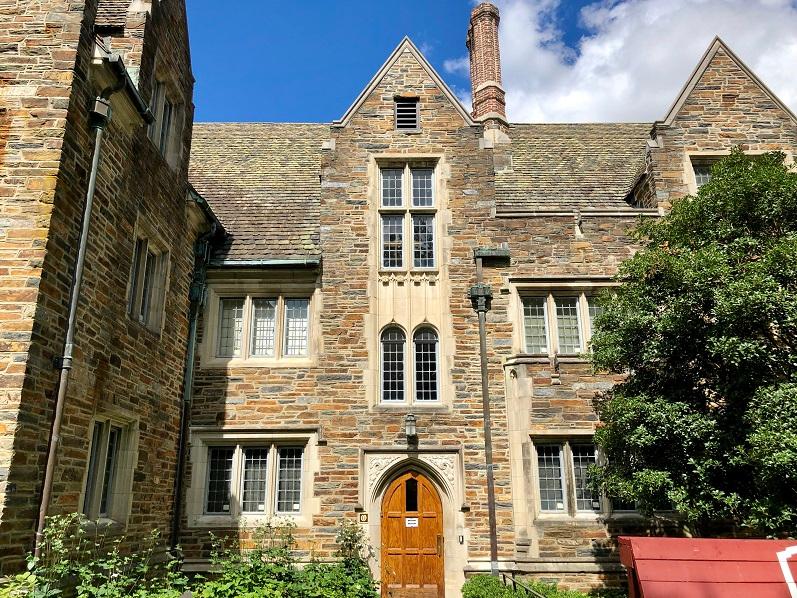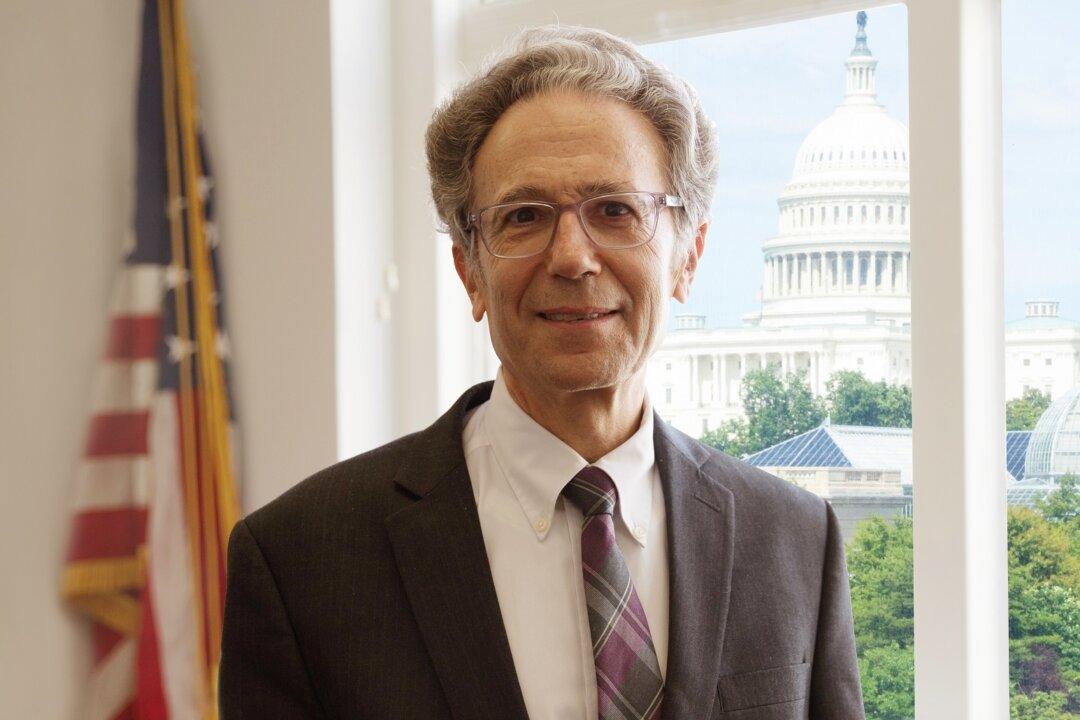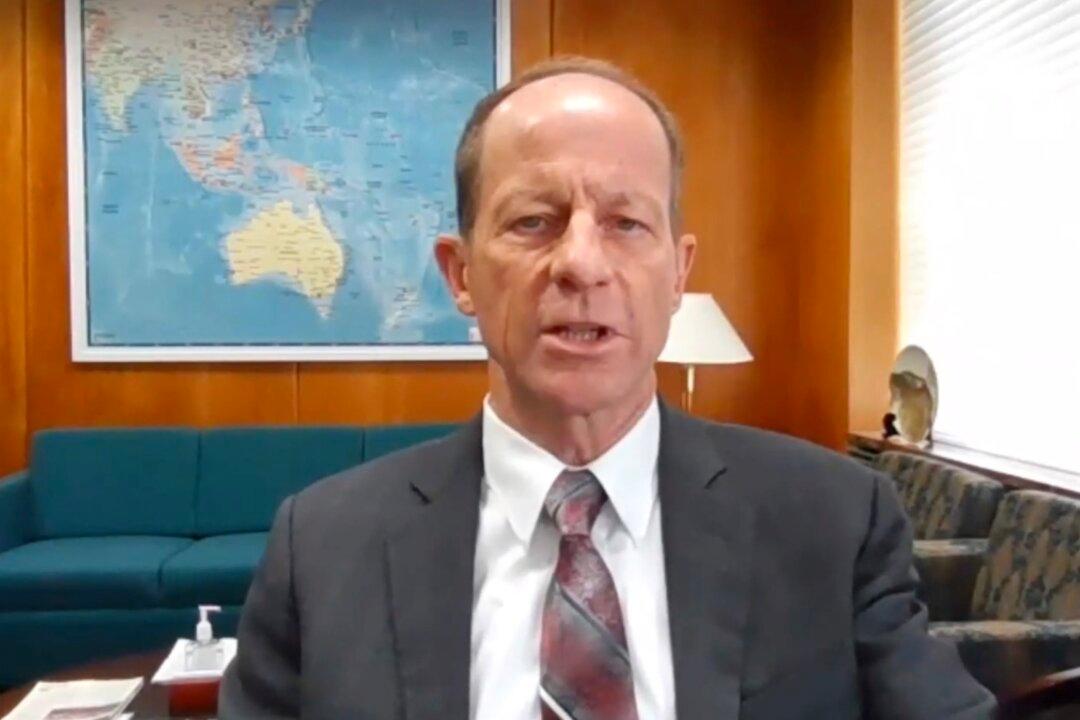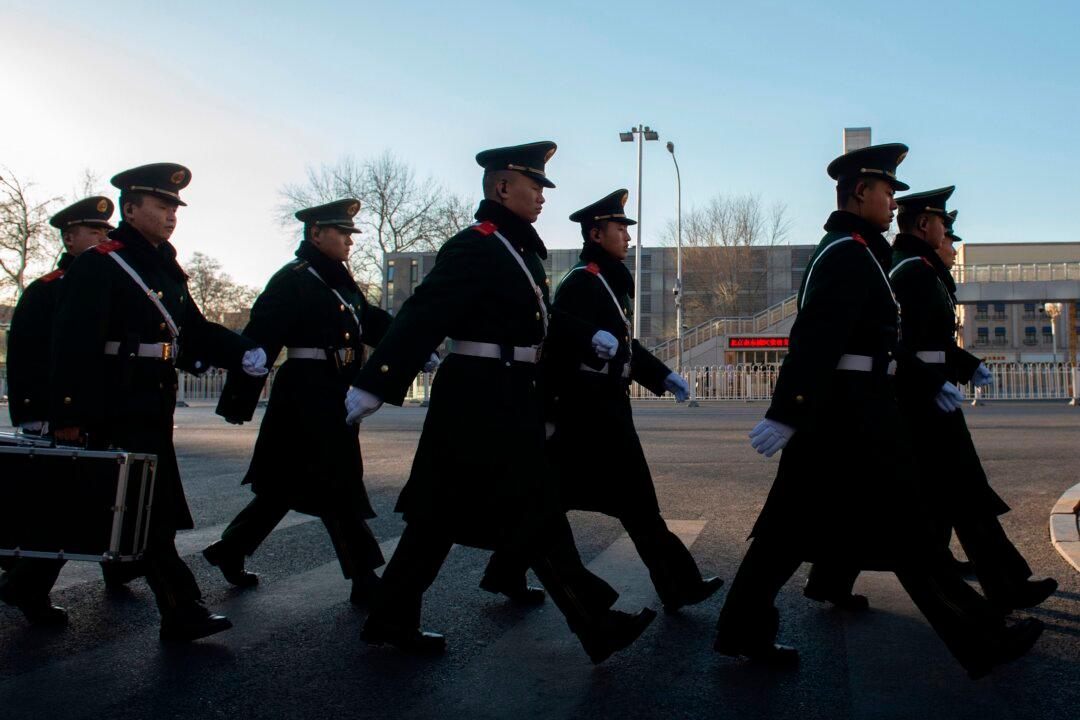A successful Hong Kong businessman is forsaking his interests and relationships in mainland China to pursue a three-point plan to rescue Hong Kong’s student protesters, revoke China’s sovereignty over Hong Kong, and delegitimize the Chinese Communist Party (CCP) through legislation and court action in the United States.
Earlier this year, Elmer Yuen, CEO of Golden Bridge Technology Inc., sent a message to all his friends in China.
Rescue Hong Kong’s Students
Yuen wants to ensure that American universities commit to offering Hong Kong students places at American universities and that the U.S. government will issue visas to allow that to happen.“I was very sympathetic to the kids,” Yuen said, referring to his participation in the protests that began in June 2019.
Those demonstrations began over an extradition proposal that threatened the civil and political rights of Hong Kong citizens in the former British colony and have continued in response to a proposed national security law that Beijing is planning to enact in Hong Kong later this year.
Because they’ve been arrested for protesting, some of the students “have a record,“ Yuen said. ”They don’t get to good schools, they don’t get a good job. So we need them to be educated here. They’re finished in HK, unless the communists go,” Yuen said.
Yuen pointed out that there are now plenty of opportunities for Hong Kong students to study in the United States, as so many mainland Chinese students are ending their studies here.
Right to Self-Determination
In a letter addressed to U.S. Secretary of State Mike Pompeo, Yuen has laid out his thinking on how to protect Hong Kong from communist China’s increasing encroachment upon the former British colony’s rights.Yuen believes that China is in violation of the treaty commitments it made in the handover of Hong Kong sovereignty from Britain in 1997. Those commitments, made in 1985 and incorporated in the Sino–British Joint Declaration, constitute a treaty that is lodged with the United Nations.
“The Chinese communists have not done anything of their part in the Sino–British Joint Declaration,” Yuen said. The British did their part, though.
“The British left them with money, they didn’t take anything away. They basically walked off, and Chris Patten called it the biggest dowry since Cleopatra,” Yuen said.
Patten, the last British governor of Hong Kong, has called the new national security legislation a “betrayal” of Hong Kong.
“Especially now with the National Security Act, they’re trying to take away our right to legislate [through] our own Legislative Council,” Yuen said.
“Since they’ve broken their promises, they should not be entitled to the sovereignty rights of Hong Kong,” he said. “So the sovereignty rights should belong to Britain.”
However, “the British don’t want Hong Kong.”
Yuen’s solution? “Give Hong Kong to the people of Hong Kong.”
He plans to drum up U.S. support for this part of his plan.
“The last time Britain and China talked, the people of Hong Kong were forgotten, so do the right thing this time, for the people of Hong Kong,” he said.
There is one condition, however.
“Within six months, we have to do a referendum, and the people have to decide what they want, whether they want to side with the British, the Americans, the communists, or they want to self-rule. A referendum.”
He added, with a laugh, “Of course, Chinese communists hate referendums.”
Hongkongers, Yuen said, “are the free people of China, the free Chinese.”
The Rudy Giuliani Model
“We want to eliminate the Chinese Communist Party once and for all, not one by one. Not even 100 by 100. One fell swoop,” Yuen declared.He sees parallels between his mission to take down the CCP and Rudy Giuliani’s assault on organized crime figures in the 1980s, when Giuliani was U.S. attorney for the Southern District of New York.
Yuen says that there are at least 14 major crimes the CCP has committed in its 71-year history for which the Party can be held accountable.
“If an organization consistently committed such crimes against humanity, what do you call it? It’s a criminal organization. It’s organized crime against humanity for 71 years,” Yuen said.
“Giuliani used RICO against the mafia.”
That 21-month trial, known as the “Case of Cases” in the media, indicted the bosses of all five of New York’s so-called Five Families, along with many of their subordinates. Those families, known together as The Commission, were charged with operating a collective ruling council that ran a variety of illegal enterprises along the East Coast. The trial was held from February 1985 to November 1986.
In that trial, Giuliani used the Racketeer Influenced and Corrupt Organizations (RICO) Act, a 1970 federal law in the United States that specifically targets organized crime, to bring charges against bosses and key players in each of the “families.”
Giuliani said his approach was no less than “to wipe out the five families,” he told Time magazine.
The key to RICO is that it focuses on ongoing criminal enterprises. The power of RICO doesn’t stop with criminal prosecutions, however. RICO also allows civil penalties to be levied on racketeering activities that are performed by a criminal enterprise.
Yuen says the CCP is exactly that.
“America is very angry. You have over 100 different actions going on, between Congress, the administration, and class-action lawsuits,” said Yuen.
But, he said, none of those things are “targeting the real mastermind.”
“The real mastermind is the CCP. The Chinese people are the victims. The real criminal is the CCP, and there are 90 million of them.”
And, he said, trying to sanction one or two or even 100 at a time is futile. “How long does it take to get 90 million?”
Yuen said he has a plan “using two routes,” one of which is through legislation.
Yuen would like to see the U.S. Congress adopt a resolution designating the CCP as a criminal organization. Then, “all the members should be treated as criminals. Everyone should be subject to Magnitsky. ... It’s not so difficult to pass. Because who’s scared of it? Everybody has suffered from this pandemic.”
The Global Magnitsky Act allows the United States to impose visa denials and sanctions on individuals guilty of human rights abuses and significant corruption.
“The other one is through the judiciary,” Yuen said. He plans to use RICO to sue the CCP in federal court.
Yuen foresees that his mission will need to circumvent at least one roadblock, however.
“There are many friends of China” in Washington, and even in the administration, Yuen said.
Asked how, if he got a RICO ruling, it would translate into bringing down the CCP, Yuen has a simple answer.
“Would you do business with Iran today?” he said.
“We strangle them. You know ... the guy who signs the contract is normally a Party member.”
Yuen said the ruling would mean the contract is invalid. “We’re going to catch every communist member, their family, their assets, their bank accounts, their credit cards, everything, you name it. And who would join the Communist Party again? Everyone would want to leave the Party!”
Background of a Revolutionary
Yuen was born in Shanghai and joined his father in Hong Kong in 1956, when he was 7 years old.The senior Yuen had fled to Hong Kong after the newly installed Communist authorities stripped him of his assets “to fight the Americans in Korea.” Nancy Yuen, his wife, remained in Shanghai with their four children, developing an avid passion for the Jehovah’s Witnesses, and proselytizing throughout China on behalf of her faith.
Amid those religious activities, she disappeared in 1956. Her family was never notified, and she was given no trial. As with other religious leaders in China at that time, she was held in a Chinese labor camp for 20 years. Encouraged by camp guards to denounce her faith as a way to gain her freedom, her son says she repeatedly refused, and was held in the camp until after the arrest of the Gang of Four in 1976, which signaled the closing chapter of the Cultural Revolution.
With the end of a decade of political extremism, chaos, and death, Yuen was able to blaze a trail back to the mainland. Using the gift of a factory as a lever, Yuen was able to get his newly freed mother and two younger sisters out of China and into Hong Kong. For years, Yuen opened factories throughout the country, investing in technology, property, and golf.
Yuen has shown that he’s not risk-averse.
The South China Morning Post reported in March 1993 that Yuen was a leading investor into one of China’s earliest and most celebrated golf clubs. That was at a time when an “uncertain political climate makes golf club ventures a dicey business,” the paper wrote at the time.
Yuen left the investment relatively early, and turned his attention to other investments throughout China, the most recent being a billion-dollar project to build natural gas and oil pipelines to Inner Mongolia from Siberia.
Motivated by Family
Yuen gets his resolve from his mother, he says.“I have her genes.”
But his immediate motivation to finally confront China was sparked by his grown children in Hong Kong, who declared that they planned to leave due to the impending dangers to Hong Kong’s freedoms.
In the end, “China is not a country,” Yuen said. “It’s really a party. A mafia party.
“What is a country? It has a constitution. Their constitution, it’s not a constitution; they can change it anytime they want.
“The whole so-called country is a façade. It’s not one country, two systems, it’s one Party, two systems.”
